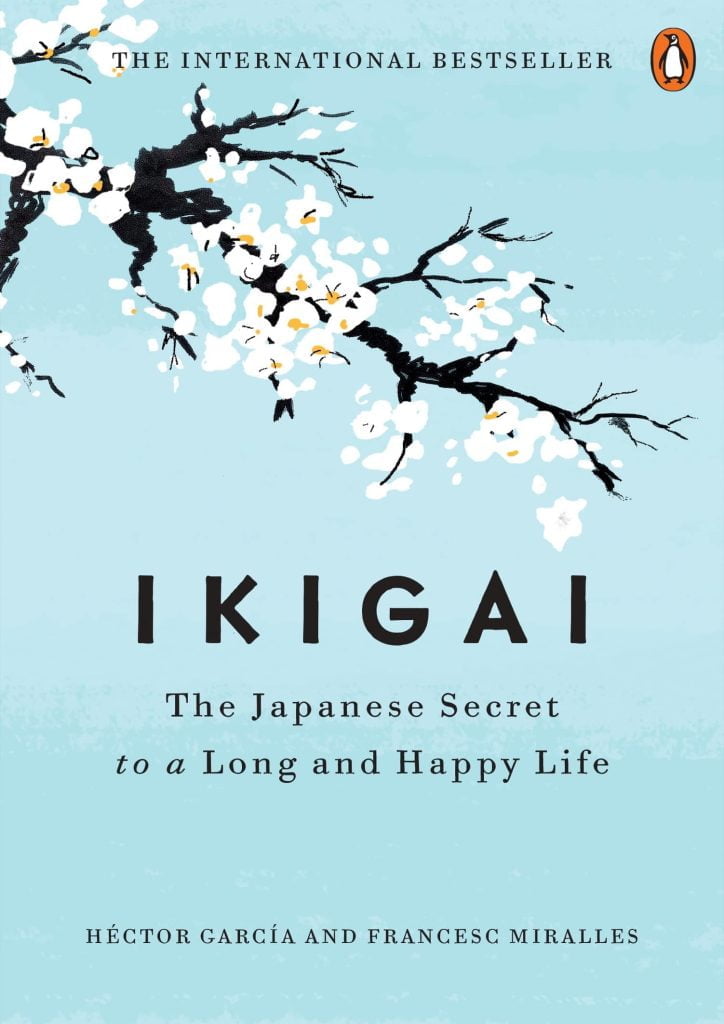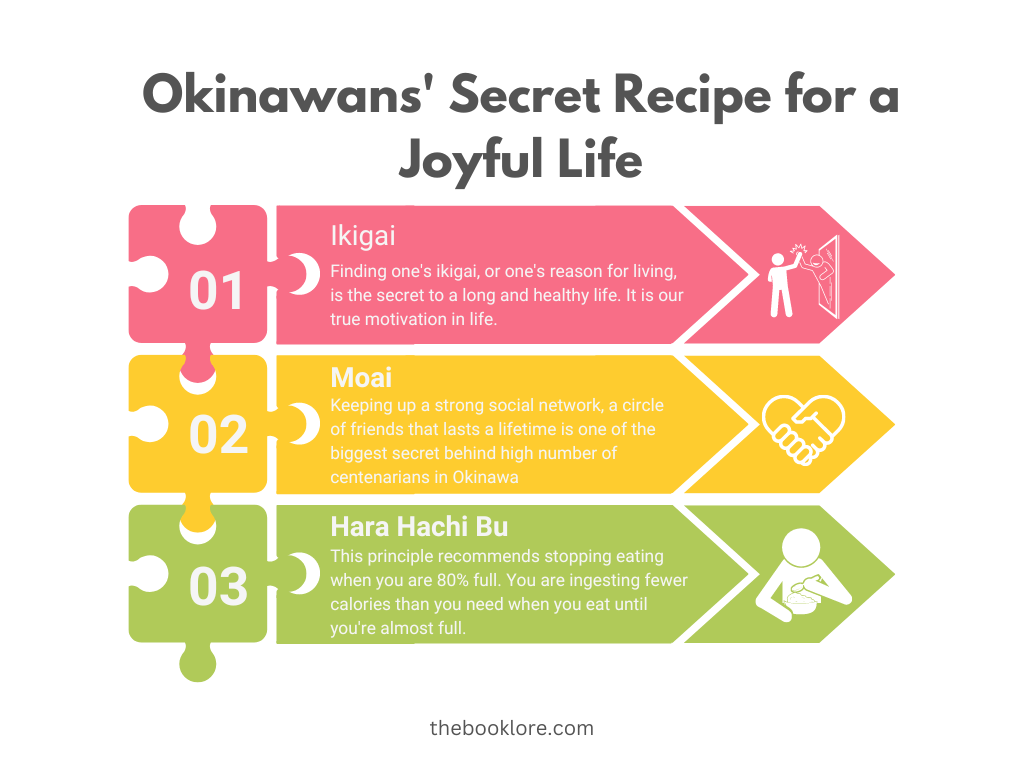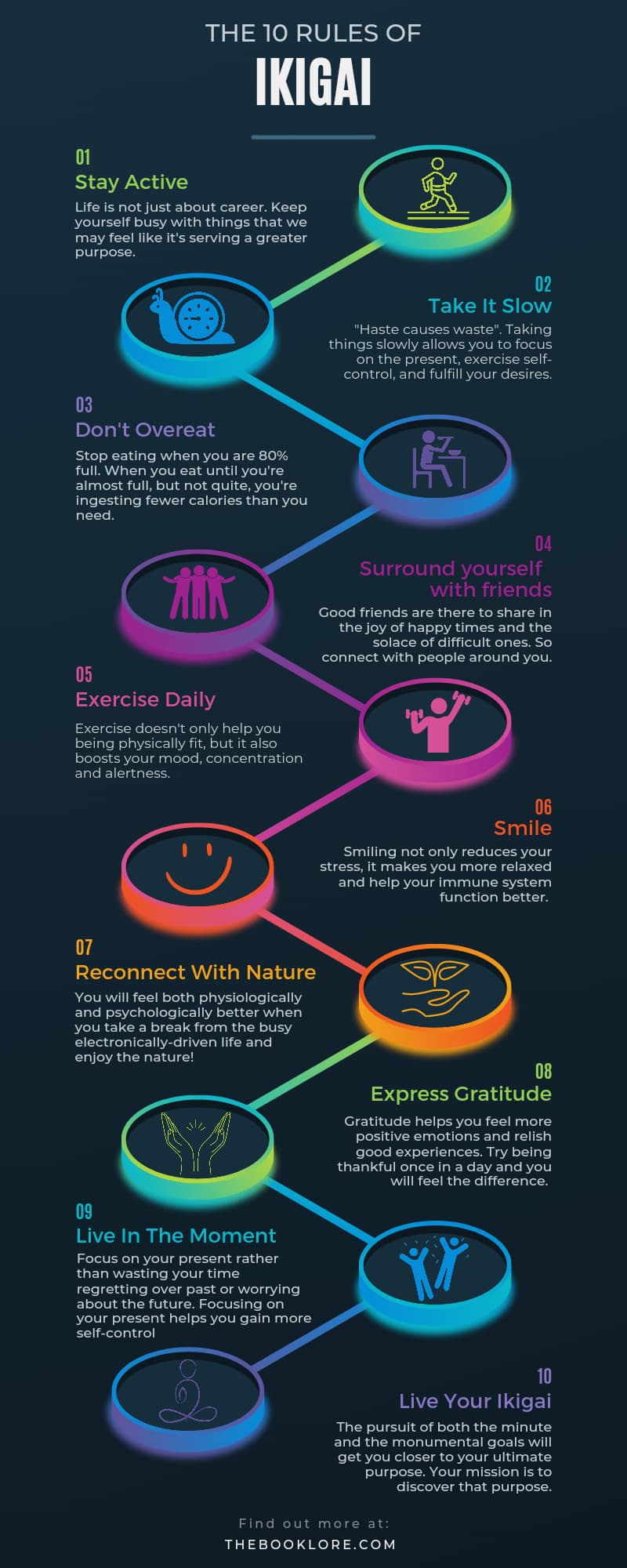
Having a “higher purpose” (or “Ikigai”), which is what motivates you to keep going even when things become tough, following a healthy lifestyle, and not giving up on life are all things that have been shown to increase longevity and improve quality of life.
Life is not a problem to be solved. Just remember to have something that keeps you busy doing what you love while being surrounded by the people who love you
Hector Garcia Puigcerver, Ikigai: The Japanese secret to a long and happy life
We’ve had this book on our list for far too long without getting around to reading it, so we thought we’d help you out by writing a concise synopsis to help you brush up on the essentials before diving in.
Are you interested in extending your life expectancy? Why not a joyful one? What if both were attainable to you? Finding meaning and happiness in life is the key to living a long and healthy life. Most of us see these goals as unattainable utopias.
Finding your life’s calling might be difficult. You do not know what you’re good at or how you can use your talents to help others. We’re taught over and over again to follow our hearts. While this is true, there is something more to think about.
This book will provide you with the tools you need to discover your ikigai and make positive changes in your life. You were born for a reason, and your unique set of experiences, knowledge, interests, and aspirations has prepared you for a certain role in the world. Now all you need to do is track it down. Discovering your Ikigai and following simple health guidelines are the keys to a long, healthy, and happy life. Wouldn’t you agree that it’s what the vast majority of people desire?

The Japanese term ikigai means “life for a reason,” and it comes from the words iki (meaning “life”) and gai (meaning “fulfillment of aspirations and expectations”). The pronunciation of ikigai is Ick-ee-guy. Finding one’s Ikigai, or one’s reason for living is the secret to a long and healthy life. Ikigai drives us; it can be said that it is our true motivation in life. It gives our live’s purpose and allows us to offer others the best of who we are right up to the end. Your job is to figure out what your ikigai is if you don’t already know it.
In contrast, people in other cultures are expected to adhere to societal norms. We give up our independence and pursue other people’s goals to fit society’s expectations. Because of this, most people never discover their true calling in life.
Now, Ikigai is not just restricted to the Japanese. There’s a French term for this the same – raison d’être. No matter what you name it, we all must take the time to figure out what drives us. As we begin each day, it is essential to think about what we are passionate about and what motivates us. This might be a job, a sport, or a pastime.
Your ikigai (or several ikigai’s) may be in different areas of your life, but whatever you choose to focus on should be your driving force. Keep in mind that your life’s work should combine your hobby with your career. It’s important to balance following your passion with fulfilling your genuine calling and making a living. No matter your occupation or passion, you should never stop doing what gives you ikigai.

The most significant concentration of centenarians in the world may be found on the Japanese island of Okinawa, which is also the book’s point of departure for exploring the roots of ikigai. When we’re in a good mood, our bodies respond positively. This book credits “ikigai” as the driving force behind the Japanese people’s unusually long lifespans and their vigorous, joyful way of life, particularly in Okinawa. To be clear, ikigai is another Japanese word, not something originating in Okinawa.
And why do the Okinawans have such a high number of centenarians? Well, it is very simple. Having a deep commitment to one’s loved ones is perhaps their biggest secret. They keep up a strong social network known as a “moai“, a circle of friends that lasts a lifetime and provides help in old age.
In addition to ikigai and moai, there is also “Hara Hachi Bu” The hara hachi bu principle recommends stopping eating when you’re 80% full. When you eat until you’re almost full, but not quite, you’re ingesting fewer calories than you need.
The concept of hara hachi bu is simpler and easier to implement into daily life than the concepts of ikigai and moai. Hara hachi bu, when combined with ikigai and moai, extracts the essence from everyday life.
This is the conclusive part of the book, where he shares ten principles of ikigai that he developed from the insights of these centenarians. Follow these rules as a guide to creating a fulfilling existence in peace with other people and the natural environment, which has been shown to increase longevity and improve health among Okinawa’s older population.

This novel, Ikigai, demonstrates that the best things in life are often the simplest. The idea of ikigai is phenomenal and can potentially change countless people’s lives. Finding your life’s purpose is important whether you’re feeling trapped in a rut, hoping to extend your lifespan, or settling into a healthy routine and devoting yourself to worthwhile activities.
It’s a thankless job to strive for perfection since what one person sees as flawless could be seen by another as just adequate. Instead, discover your ikigai and revel in the uniqueness of being human.
This book is a must-read, in our opinion. It’s not the boring nonfiction you’re probably used to, but it’s still a pleasant change of pace. Find your ikigai by reading it.
some really qualityarticleson thisinternet site ,saved to bookmarks .I want to thank you for the outstanding post!! I certainly liked every bit of it. I’ve bookmarked your web site so I can take a look at the latest articles you post later on.
Glad you loved the content. Keep coming back 🙂
Your article helped me a lot, thanks for the information. I also like your blog theme, can you tell me how you did it?
Glad you liked the theme, it’s a custom made theme that I made 🙂